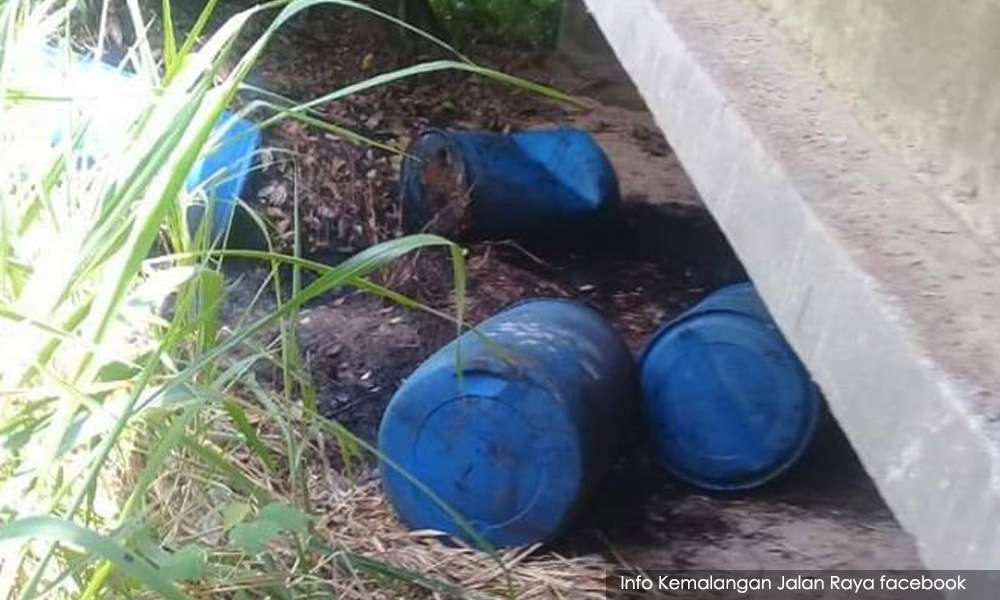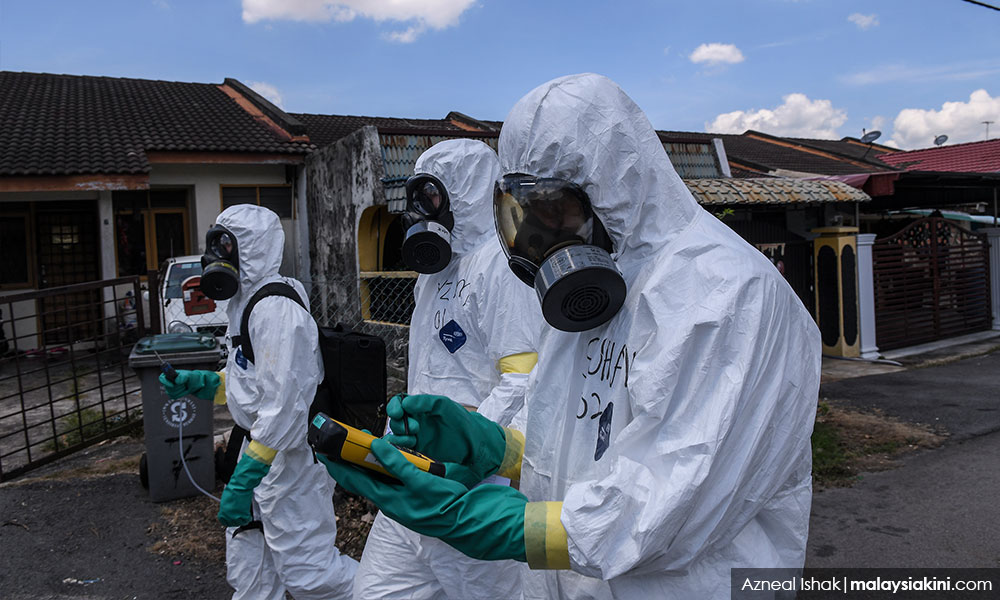There will likely be no end to the environmental issues plaguing Pasir Gudang, Johor, if the authorities fail to draw up proactive measures to curtail the dumping of toxic wastes by factories located in the area.
Universiti Putra Malaysia (UPM) environmental expert Dr Mohd Yusoff Ishak said such incidents would continue to occur if drastic steps, such as the creation of a buffer zone and tightening the limit on waste emissions, are not taken immediately.
Just three months after the Sungai Kim Kim incident where toxic fumes from illegally-dumped chemical waste affected some 6,000 residents in Pasir Gudang, schools and education centres in the area were ordered closed on June 23 after about 75 schoolchildren fell ill due to suspected air pollution.
To date, the source of the air pollution has yet to be identified.
Mohd Yusoff, who is a senior lecturer at the Department of Environmental Management at UPM, said the second incident did not come as a surprise since Pasir Gudang is packed with factories handling potentially hazardous chemicals. What is more, the housing areas there have also been developing rapidly.
"It is like a time bomb that can explode anytime," he said.

Flouting the law
Mohd Yusoff said logistics constraints and shortage of technical expertise were hampering the Department of Environment's (DOE) efforts to carry out comprehensive monitoring. This has led to failures in taking the necessary preventive actions and delayed identifying the culprits responsible for the pollution.
He said this was proven when the Johor government announced yesterday that following an operation by DOE which started on June 20, action was taken against 38 chemical factories for offences under the Environmental Quality Act 1974.
"This clearly shows that many factories there are flouting the law. (Due to various constraints) DOE is taking the self-regulation approach in the hope that the factory operators will follow the necessary SOP (standard operating procedures) when handling chemical wastes.
"However, some of the operators have their devious methods of covering up their illegal ways to escape prosecution," he added.
He also said that all details on the import of chemicals, such as the names of the supplier, distributor and buyer, as well as end-users of the chemical products, must be shared with DOE to make it easier for the department to carry out its monitoring activities.
Special fund, court
Mohd Yusoff also called for the establishment of a special fund to carry out preventive, conservation and rehabilitation activities, with the factory operators there contributing to the fund via a profits-based tax.
Fines collected from errant factories for flouting environmental laws can also be channelled to this fund, he said, adding that the fund can also be used to pay out compensation to the victims.
"The authorities must make it compulsory for all the factories involved to contribute to this fund. Only then will they be more responsible when handling wastes produced at their plants," he added.
Mohd Yusoff also proposed a special court for environment-related cases to speed up their hearing.
There was a suggestion for such a court four years ago, he said, adding that in Sabah, a special court for environment cases has been operational since 2015.
"In environment-related cases, especially those involving chemical substances, the evidence - whether in the air, soil or water - can be compromised in a short time. It can disappear and cannot be traced like what happened in the second incident in Pasir Gudang. So that's why there is a need to act on such cases quickly," he said.
He also urged the government to enhance research and development funding in the area of environmental forensic techniques to improve on-site investigations so that the contaminants can be identified swiftly.
The R&D efforts should also include the creation of a database of all the chemicals used in Pasir Gudang, which will make it easier for the authorities to detect the identity of the chemicals responsible for any pollution.
"It will also make it easier for them to single out the factory causing the contamination," said Mohd Yusoff.
He welcomed the government's decision to set up automated pollutant monitoring stations in Pasir Gudang and he hoped that they would be equipped with sophisticated technology to not only identify air, soil and water pollution but also zero in on the polluters themselves.

Continuous monitoring
Meanwhile, Dr Mohd Shahrul Mohd Nadzir, a senior lecturer at Universiti Kebangsaan Malaysia's Centre for Earth Sciences and Environment, said it was crucial for the authorities to continuously monitor the air quality status.
He also pointed out the importance of ensuring that the equipment used to measure air quality is in good working order.
"If no proper quality assurance and quality control measures are observed, then the equipment may give inaccurate readings," he said, adding that it should also be calibrated regularly.
Referring to the latest incident in Pasir Gudang, Mohd Shahrul said the air quality monitoring equipment may not be able to measure all the pollutants in the air.
"Therefore, before measuring (air quality), (we have to) identify the pollutants that have been detected via scientific articles and other reading materials. If we use the wrong tools, we will end up giving the wrong information," he added.
- Bernama

